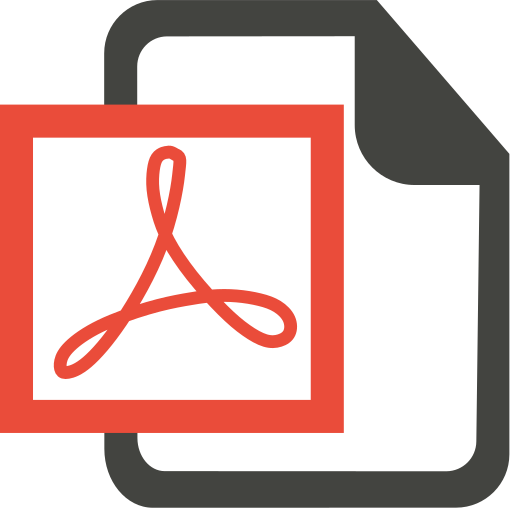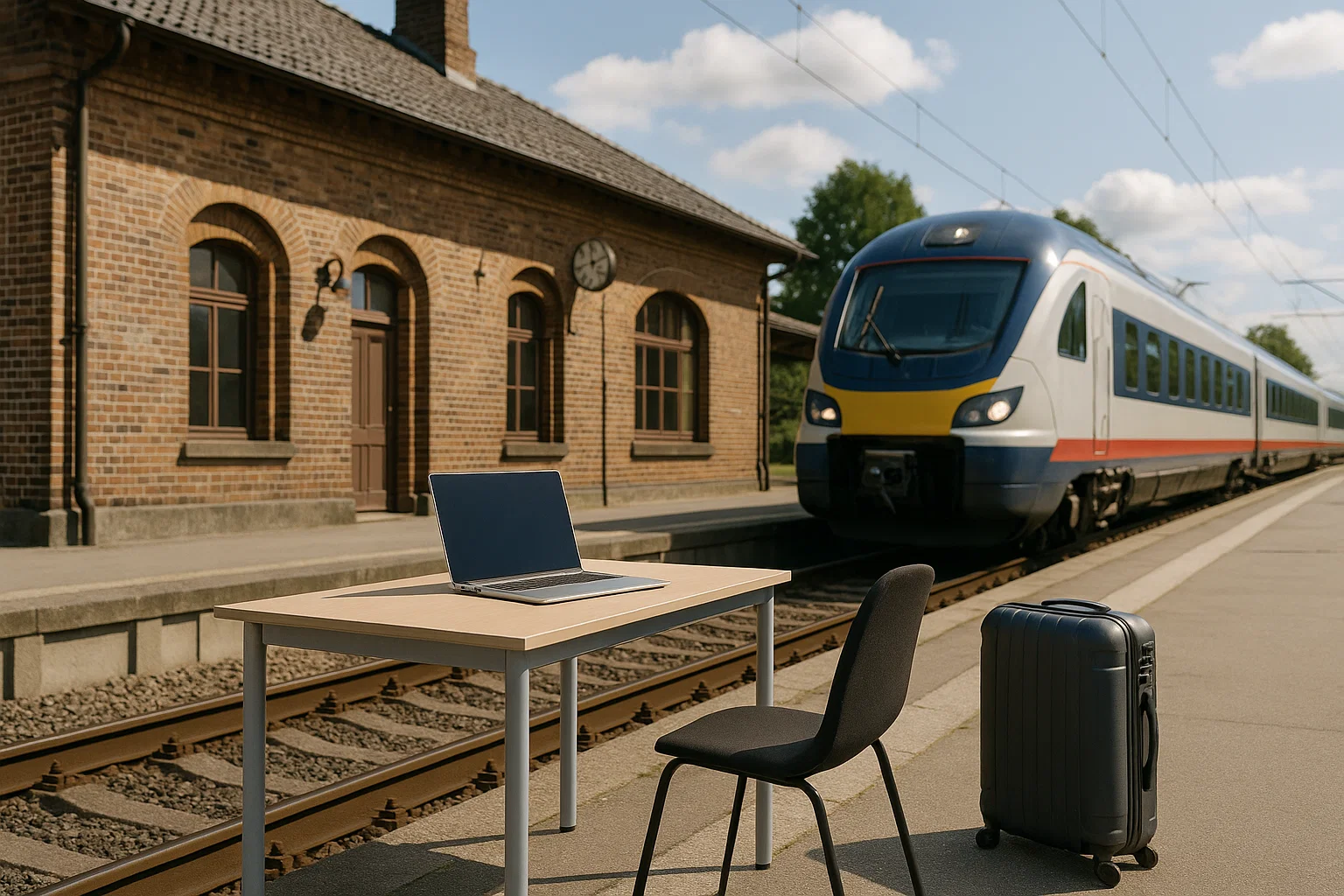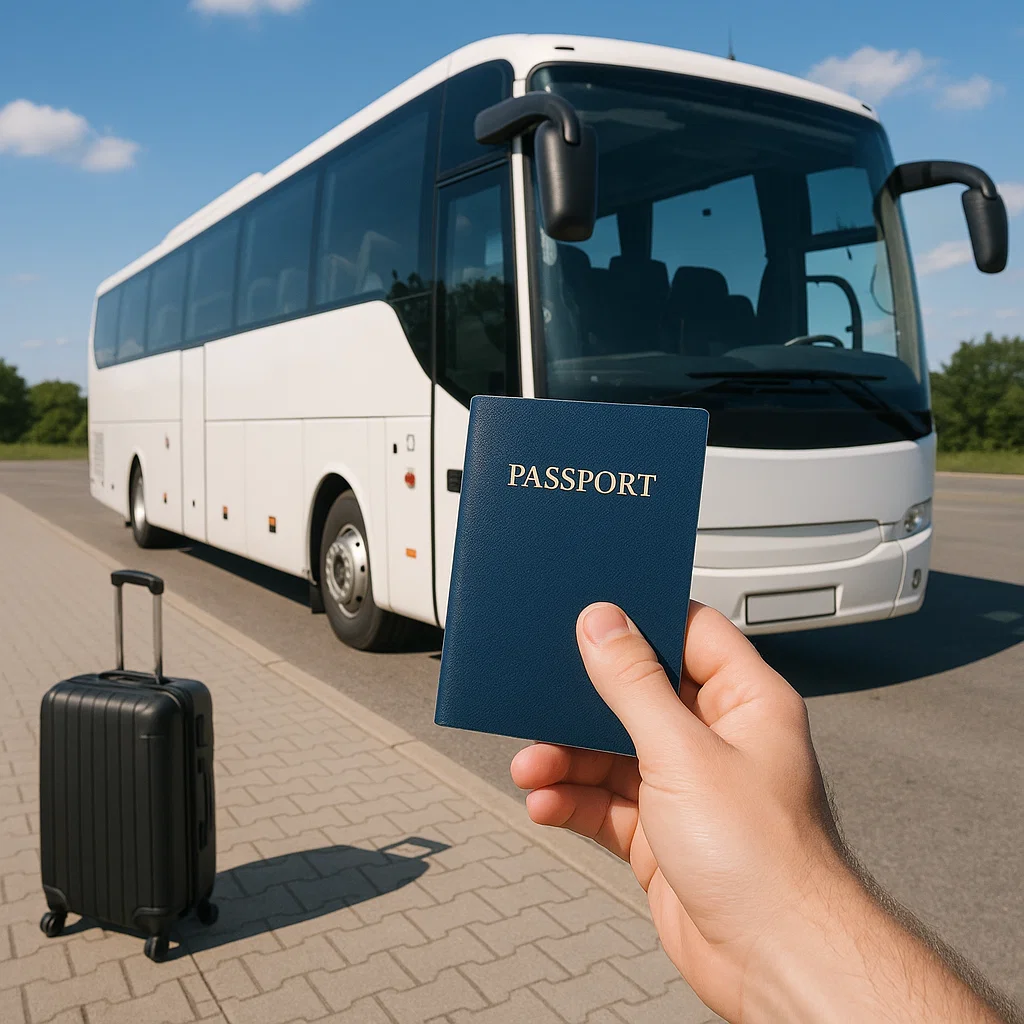Full Episode Audio (download link is to the right of the volume icon)
Listening Comp. Audio (download link is to the right of the volume icon)
Welcome to Lesson #7 of Stress Free German. We’re going to do things a little differently today, by not reviewing any nouns from the first six lessons. It’s for the same reason that we do the Tip of the Day: To make a gap before prompting you to recall those words.
Let’s start with a brand new picture. In this one there’s a table, which tells us that all the elements in the picture are….?….masculine. The table and chair are outside a train station. On the table is a computer. A suitcase on the ground. In the background is a train. So that’s five new elements:
chair, computer, suitcase, train station, train.
All masculine. Here are the first three…
Stuhl
Computer
Koffer
The first two are easy, right? We say stool in English, and they make it an “sht” sound…
Stuhl
…and computer, notice the “easy R” at the end
Computer
The next one, Koffer, is a cognate. In English, a coffer is a small chest for holding valuables. Koffer (German, by the way, spells it with a K.)
Ask: Where is my chair?
Wo ist mein Stuhl?
Where is your computer?
Wo ist dein Computer?
Where is the suitcase?
Wo ist der Koffer?
Great, and the last two. They’re related…
Bahnhof
Zug
If you’ve ever travelled in a German speaking country, you’ve almost certainly encountered the word Bahnhof. When traveling by train from city to city, the Bahnhof is the building where you arrive. The word breaks down literally as rail-yard. But in English, we say train station. Bahnhof
And finally: Zug
As you hear the sound FX, try to see the image in your head before saying each word. Ready?
chair scrape, typing computer, suitcase zipper, train station announcements, train sounds
As we hear the sounds again, this time in a different order, the speaker will ask: Was ist das?
You answer: That is the ….whatever.
Das ist der Zug.
Das ist der Bahnhof.
Das ist der Stuhl.
Das ist der Koffer.
Das ist der Computer.
(swell)
Next up, two new verbs. If you’ve been at German for any amount of time, you likely know this first one: Ich liebe. For example: Ich liebe München.. I love Munich. Or say:
I love Hamburg.
Ich liebe Hamburg.
But here’s the opposite verb: Ich hasse. For example: Ich hasse Pilze. I hate mushrooms.
(I hate McDonald’s clip?)
So let’s bounce back and forth between loving and hating things. For example, if I say “dog”, you’d say in German…I love my dog. I hate your dog.
Ich liebe meinen Hund. Ich hasse deinen Hund.
chair
Ich liebe meinen Stuhl. Ich hasse deinen Stuhl.
computer
Ich liebe meinen Computer. Ich hasse deinen Computer.
suitcase
Ich liebe meinen Koffer. Ich hasse deinen Koffer.
We’re trying to practice our new words, but we always want to do so in realistic phrases. Since it’s not realistic to say, I love my train, or I hate your train station, let’s try asking…
Where is the train station?
Wo ist der Bahnhof?
Where is my train?
Wo ist mein Zug?
Where is your suitcase?
Wo ist dein Koffer?
Nice job!
(music)
Time to clear your mind, and make room for a new picture. This one is very simple. Imagine a bus, a suitcase, and someone’s hand holding a passport. That’s only two new elements: bus and passport.
Bus
Pass
The suitcase is there to tell us that the elements are masculine. So let’s add the article this time:
Der Bus
Der Pass
Ask: Where is the bus?
Wo ist der Bus?
Where is my passport?
Wo ist mein Pass?
How about: Is that my bus?
Ist das mein Bus?
Is that my passport?
Ist das mein Pass?
Is that your train?
Ist das dein Zug?
Is that your passport?
Ist das dein Pass?
TIP OF THE DAY
The other day someone wrote in asking about immersion programs. Do I know any good language schools in Berlin or Hamburg. I read that a lot, people claiming that immersion is the way to go, but I respectfully disagree. After all, if being surrounded by native speakers 24/7 is so effective, then one wonders why tens of thousands of immigrants struggle to speak the language of their new land. Immersion might work for some, but it clearly does not work for all.
I learned Russian while living and working full time in the US. Сейчас я говорю по-русски более или менее свободно. I had no immersion. What I made sure to do, though, was absorb the language the right way. You need to be using effective memory techniques, you need to be learning the super-literal translation of things, you need to be doing tons of pattern recognition to break down the grammar, and you need to be working towards fluency using something called construction branching. You do not need immersion. The reason I’m coming down so hard on that is because I think people use it as an excuse. If they struggle with the language they tell themselves, “Well, of course I’m not learning German because I’m not in Germany. I’m not being immersed.”
But that’s not the issue. You were struggling because you weren’t taught properly. That’s the very issue we aim to change with this course. So let’s get back to it…
Two more easy cognates to add. Imagine a cup of coffee and a cup of tea on a table, and in the background is a train. Both Kaffee and Tee are masculine. We know that because of the table and train. Say…
The coffee.
Der Kaffee
The tea
Der Tee
Try to say: I love my coffee.
Ich liebe meinen Kaffee.
Do you remember the verb meaning “to need”? For example:
I need my passport.
Ich brauche meinen Pass.
What about the “he” conjugation for that? For ex:
He needs a suitcase.
Er braucht einen Koffer.
Based on that example of going from Ich brauche to Er braucht can you guess the “he” conjugation for the verb “to love”? For example:
He loves coffee. Hit pause and think about it…
Er liebt Kaffee.
If you got that, excellent. If not, no problem. Let’s try another. So, do you recall the verb “to look for” or “to search for”? For example:
I’m looking for my computer.
Ich suche meinen Computer.
Okay: Ich suche So can you guess what the “he” conjugation might sound like? For example:
He is searching for his chair.
Er sucht seinen Stuhl.
Ich suche, er sucht. Cool!
You know, when you do finally take a trip to a German speaking country, you’re probably going to be the only one in your group who speaks the language. This means you’ll be doing a lot of translating. For example, when your friend needs a new suitcase, you explain to the shop owner:
He is looking for a big suitcase.
Er sucht einen großen Koffer.
Whoa, that was a tricky one. Listen again? Er sucht einen großen Koffer.
Do you remember that topic from Lesson 6, when we worked with adjectives?
Try that again. Say…
I’m looking for a big suitcase.
Ich suche einen großen Koffer.
To practice that some more, here are two new adjectives. Both sound very close to the English versions. Listen?
alt neu
Here, fill in the blank. Ready? My grandmother lived to be 102. That is really, really….alt.
After signing the lease, we drove off the lot in a BMW. It’s nice to drive a car that’s brand …. neu.
Say those again: Old and new.
Alt und neu.
One more time: Old and new. Alt und neu.
In a museum, you see a rotary phone. (Sound FX)
Das ist alt.
Then you take out the iPhone you just got for your birthday.
Das ist neu.
Try: The suitcase is old.
Der Koffer ist alt.
The computer is new.
Der Computer ist neu.
And now we’re going to do something to the noun. So the supporting words get that “en” ending, right? Try to say…
I have an old suitcase.
Ich habe einen alten Koffer.
He needs a new computer.
Er braucht einen neuen Computer.
How about: I want your old chair.
Ich will deinen alten Stuhl.
Imagine you’re up in the attic. Your German grandmother calls up to you:
Do you see his old suitcase?
Siehst du seinen alten Koffer?
(music)
Of all our new nouns today, only two are truly unrelated to the English versions. One was this place…(sound FX)
Der Bahnhof
And one was this thing…(Sound FX)
Der Zug
Ask: Where is the train station?
Wo ist der Bahnhof?
Where is the train?
Wo ist der Zug?
A little more review. Try to say: He needs my passport.
Er braucht meinen Pass.
Tell a friend: I see your bus.
Ich sehe deinen bus.
Let’s finish today by reviewing our new “he” conjugation of verbs.
I love coffee.
Ich liebe Kaffee.
He loves tea.
Er liebt Tee.
I need a suitcase.
Ich brauche einen Koffer.
He needs a passport.
Er braucht einen Pass.
I’m looking for McDonalds.
Ich suche McDonalds.
He is looking for Starbucks.
Er sucht Starbucks.
I have an old computer.
Ich habe einen alten Computer.
He has a new computer.
Can you figure out the verb? I’ll give you a hint: It’s only three letters long. And the first two are H and A….
See you in the next lesson with the answer.
Lesson PDF Download – Right click on PDF Icon – Save Link As…




I grew up hearing German in my family and I took a course a long time ago, but this is the most confident I have been at learning German. It is sinking in and I’m impressed how easily I am picking it up again. This method works for me.
Glad to hear it, Andrea!
These classes are really great. I am beginning to GET it! (-:
So glad to hear it, Barbara!